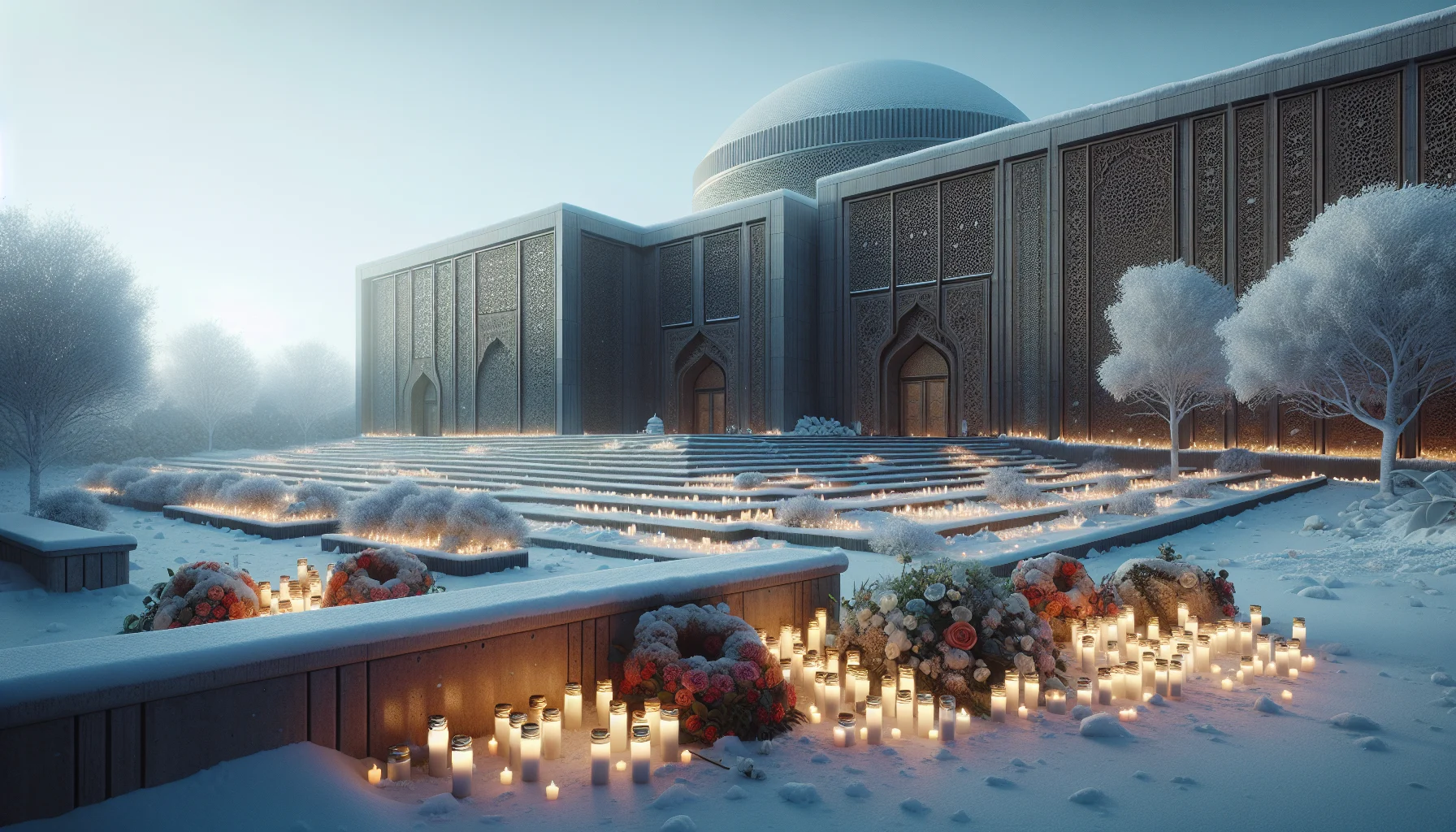
Quebec City Mosque Shooting
by: The Calamity Calendar Team
January 29, 2017
A Community in Turmoil
On a chilly winter evening in Quebec City, the serene calm of the Sainte-Foy neighborhood was shattered by an unforeseen tragedy. The Islamic Cultural Centre of Quebec City, a pillar of spiritual and communal life for Muslims in the region, became the backdrop for an act of violence that Canada would not soon forget. Known for its welcoming atmosphere, this mosque had already borne the brunt of rising global tensions over issues of immigration and religious intolerance. It had been a sanctuary, now scarred by the previous threats of Islamophobia that lingered like a specter in prior incidents.
The center was bustling at around 7:50 PM as worshippers ended their evening prayers. Families and friends congregated, as they did every evening, finding solace and fellowship in their shared faith. It was then, with roughly 40 people within its walls, that their peaceful sanctuary turned into a scene of chaos and terror. When Alexandre Bissonnette stepped through those doors, the sombre chill of outside paled in comparison to the darkness he would unleash within.
Minutes of Horror
With a 9mm Glock pistol in his hands, Bissonnette moved through the prayer hall, his shots echoing in the sacred space. The attack was as swift as it was brutal, lasting a mere two minutes but leaving disaster in its wake. The gunfire did not discriminate between age or standing; it was aimed at all who were present. The air, once filled with the murmur of prayers, now carried the sounds of panic and injury.
By 7:55 PM, the police switchboard lit up with calls as news of the shooting spread quickly. However, before authorities could arrive, the attacker fled the scene, leaving behind a community devastated and several families forever altered. The sanctuary emptied as survivors sought safety, carrying with them the haunting memory of what had transpired.
The Manhunt and Surrender
The response was swift, with emergency services converging on the mosque and surrounding area. The search for the shooter was unencumbered, leading authorities to a key development that defied typical narratives in such grim episodes. About 20 kilometers east, Alexandre Bissonnette made a call to 911. He offered no resistance when he was apprehended, a stark juxtaposition to the violence he had instigated moments earlier.
A Community in Mourning
As the dust settled, the harsh reality came into focus. Six men, aged 39 to 60, had been killed in the attack. They were vital threads in the fabric of their community, their loss leaving an indelible tear. Nineteen others bore physical scars, five grappled with critical injuries, and all were left to navigate a profound emotional wreckage that would ripple throughout Quebec and beyond.
Thanks for subscribing!
The repercussions extended beyond the immediate circle of victims. There was an economic toll as places of worship across the nation faced increased security costs. More profound, however, were the mental health impacts, as fear and sadness became intertwining shadows over a community already wary of prejudice and violence.
Echoes Across a Nation
The shockwaves from the shooting reverberated throughout Canada, summoning a spontaneous outpouring of grief and support. Vigils were held nationwide, candles flickered in the cold, casting a warm glow as communities of all backgrounds came together to honor the victims. Across provinces, memorials spoke of resilience and love in the face of hate, encapsulating a defiance of the hateful ideology that had incited such violence.
Political leaders united in condemnation. Prime Minister Justin Trudeau and Quebec Premier Philippe Couillard accentuated the necessary narrative shift; this was terrorism, borne of prejudice and intolerance. The governmental response underscored not only mourning but a call to vigilance against the ideologies that fostered such an attack.
Justice and Reflection
In the legal aftermath, Bissonnette was sentenced to life in prison, initially without the possibility of parole for 40 years. It was a significant ruling, reflective of the severity of his actions. Yet, Canadian legal standards would see this reduced to 25 years, a decision that sparked debates on justice and retribution in the face of extremist violence.
Investigations revealed a chilling undercurrent: Bissonnette had been steeped in far-right ideologies, influenced by anti-immigrant sentiments that he had absorbed through an online echo chamber of hate. His actions were not born from isolation but were, rather emphatically, a reflection of the broader societal tensions simmering at the time.
A Legacy of Resilience
The shooting at the Quebec City mosque stands as a haunting benchmark in Canada's recent history—a grim reminder of the lethal potential of hate when left unchecked. It pushed the dialogue forward about hate crime legislation, gun control, and the importance of intercultural dialogue. As candles extinguished and Canada moved forward, the lessons from this tragic event remain pertinent.
Discussions continue to evolve, with the country urging for stronger measures to curb hate speech and promote understanding. In the aftermath, the unity displayed underlined a commitment to diversity and acceptance, an echo of a nation refusing to bow to fear.
The Islamic Cultural Centre of Quebec City remains more than a memory of tragedy. It endures as a testament to resilience, a place where faith persists, binding a community in hope and collective healing. As fresh flowers and candles grace its doorstep, they speak not of loss alone, but of an enduring pledge to remember, rebuild, and rise above the darkness of that fateful night.
Stay in the Loop!
Become a Calamity Insider and get exclusive Calamity Calendar updates delivered straight to your inbox.
Thanks! You're now subscribed.